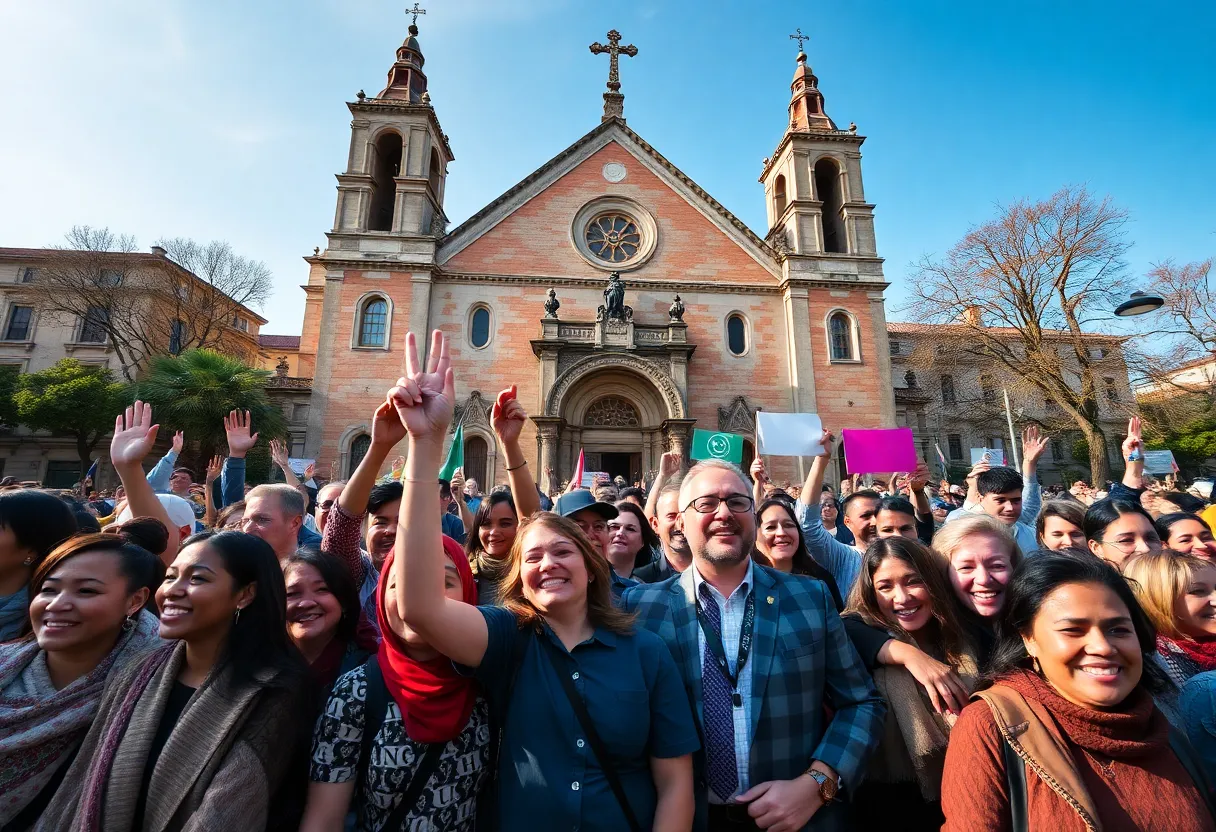News Summary
Cardinal Robert Francis Prevost has made history by becoming Pope Leo XIV, the first American pope. His election reflects a multicultural identity and a shift within the Catholic Church, as he embraces diversity and focuses on global issues rather than American politics. Pope Leo XIV’s ascension represents a landmark moment for representation in the church, particularly for Black and Creole Catholics. His leadership promises to spark essential discussions on race, faith, and societal divisions.
Pope Leo XIV: A New Era for the Catholic Church
In a historic moment for the Catholic Church, Cardinal Robert Francis Prevost has been elected as **Pope Leo XIV**, making him the first American pope in history. Many around the globe had their doubts about the possibility of an American occupying the papal throne. However, Pope Leo XIV’s election opens a new chapter, revealing a beautiful tapestry woven from his diverse heritage, which includes Creole roots and a deep connection to the African American community.
A Unique Background
Born in **Chicago** in 1955, Pope Leo XIV has spent a significant chunk of his life in **Peru**, immersing himself not just in the culture but in the language as well. He is fluent in at least three languages, a testament to his **multicultural identity**. Upon stepping into his papal role, he chose to greet the public in Spanish, signaling a deliberate move toward embracing the intricate diversity within Catholicism.
A Global Embrace
The response from Catholics around the world has been overwhelmingly positive. Many are rallying behind his representation, celebrating the pieces of his identity they claim as their own. For example, young Catholics in places like Paris find excitement in calling him a **“priest of the world”**, reflecting a universal connection that transcends borders.
Addressing Concerns
However, his election did not come without anxiety, particularly concerning the intersection of faith and American politics. In a time when the political atmosphere is increasingly divisive, especially during the Trump administration, many worried what an American pope might mean for the church. Yet, instead of aligning with the complexities of U.S. politics, Pope Leo XIV has chosen to focus on more pressing global issues such as **peace**, **justice**, and advocacy for underprivileged populations like migrants and the poor.
Celebrating Heritage
Through genealogical research, we also learn of Pope Leo XIV’s fascinating **African American ancestry**. His maternal lineage traces back to Louisiana’s Creole culture, enriched by a blend of African, French, and Spanish heritage. Historical records reveal that his maternal grandfather, Joseph Martínez, born in Haiti, was designated as Black in the 1900 census, underscoring the **rich complexity** of his background.
A Cultural Moment
Pope Leo XIV’s ascension to the papacy isn’t just significant for his followers; it’s heralding a cultural shift within the Catholic Church. For centuries, the papacy has mostly been viewed through a **European lens**, but his election challenges that narrative, offering representation to Black and Creole Catholics, which is long overdue.
Broader Implications
The election raises intriguing questions for conservative Christians. It nudges them to reconsider their perspectives on race and identity in the context of leadership within the Church. Pope Leo XIV importantly brings focus to the contributions of marginalized groups, asserting that **holiness transcends race** and affirming the Church’s broader mission.
Modern American Catholicism
By embodying the complexities of American Catholicism, Pope Leo XIV emphasizes the Church’s **global** and **diverse nature**. His presence in religious authority could spark essential discussions regarding race, faith, and even societal divisions, reflecting either acceptance of diversity or resistance to change.
A Reflective Transition
The excitement surrounding Pope Leo XIV is palpable. It ignites hope and anticipation for what his leadership will mean for Catholics everywhere. His papacy represents a significant turning point, offering a chance to embrace **diversity**, to confront truths about racial history, and to reflect on how such a change occurs within a universal faith.
Pope Leo XIV’s election is not merely an event in history; it’s a vibrant sign of shifting tides in a church that’s becoming ever more reflective of the world around us.
Deeper Dive: News & Info About This Topic
- The New York Times: Pope Leo XIV’s Global Reception
- Eurweb: Pope Leo XIV – America’s First Black Ancestry Pontiff
- The New York Times: Pope Leo XIV and Creole Identity
- The New York Times: The Ancestry of Pope Leo XIV
- AL DÍA News: The Armored Revolution and Its Implications
- Google Search: Pope Leo XIV
- Wikipedia: Pope Leo XIV
- Encyclopedia Britannica: Pope Leo XIV
- Google News: Pope Leo XIV

Author: STAFF HERE PETERSBURG WRITER
The ST PETERSBURG STAFF WRITER represents the experienced team at HEREStPetersburg.com, your go-to source for actionable local news and information in St Petersburg, Pinellas County, and beyond. Specializing in "news you can use," we cover essential topics like product reviews for personal and business needs, local business directories, politics, real estate trends, neighborhood insights, and state news affecting the area—with deep expertise drawn from years of dedicated reporting and strong community input, including local press releases and business updates. We deliver top reporting on high-value events such as Grand Prix of St. Petersburg, Localtopia, and SHINE Mural Festival. Our coverage extends to key organizations like the St. Petersburg Area Chamber of Commerce and St. Pete Downtown Partnership, plus leading businesses in finance, manufacturing, and healthcare that power the local economy such as Raymond James Financial, Jabil, and Bayfront Health St. Petersburg. As part of the broader HERE network, including HEREJacksonville.com, HEREOrlando.com, HERETallahassee.com, and HERETampa.com, we provide comprehensive, credible insights into Florida's dynamic landscape.



